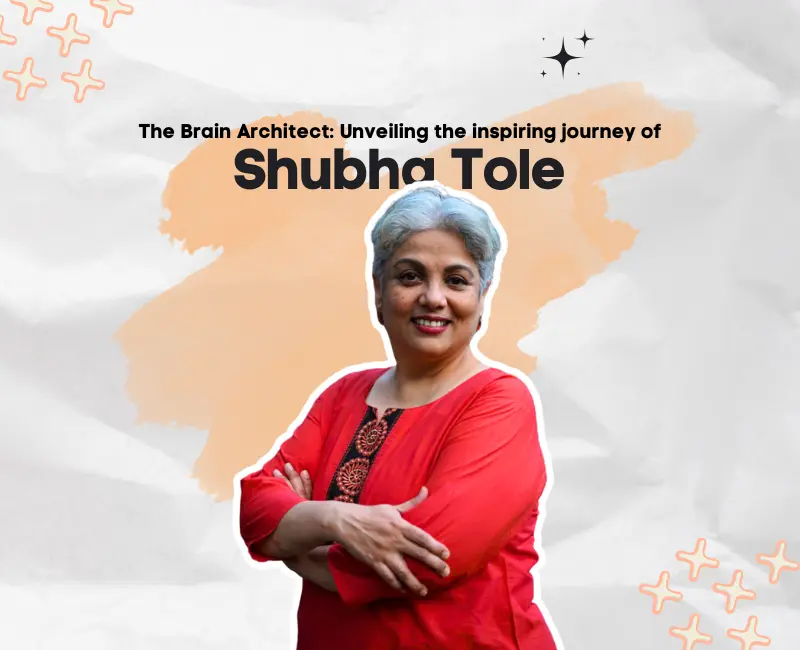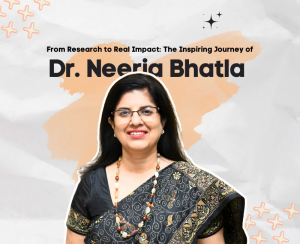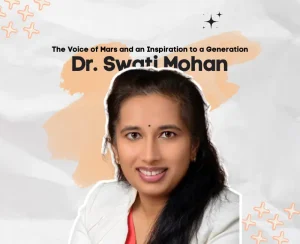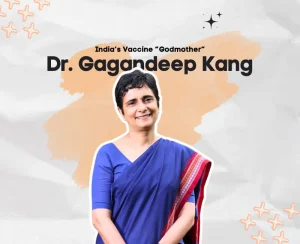The Brain Architect: Unveiling the inspiring journey of Shubha Tole

Shubha Tole is an inspiring woman who brought a new era to brain science. She is a leading Indian woman neuroscientist, professor, and principal investigator at the Tata Institute of Fundamental Research in Mumbai, India. Her rise in neuroscience is one worth knowing. She dedicated her life to unravelling the secrets of the brain. She became a role model for women in science, breaking all barriers and becoming another woman to prove that women can excel in any field. This article will take you through Shubha’s journey, learning about her background, personal and professional life, and achievements.
Early life and background
Shubha Tole was born on August 1, 1967, and is currently 57 years old. She belonged to a family of knowledge, logic, and creativity and was successfully handed down the family heirloom. Her mother, Aruna P. Tole, was an occupational therapist responsible for the design of prostheses, aids, and appliances for cancer patients. Her dad, Padmakar Tole, was the director of SAMEER, an institute under the Department of Electronics, the Government of India, in August 1967.
Shubha Tole’s journey in neuroscience is a testament to her unwavering passion. After graduating with a life sciences and biochemistry degree from St. Zavier College in Mumbai, she pursued her master’s and doctoral degrees at the California Institute of Technology. Her thirst for knowledge was insatiable, leading her to conduct post-doctoral research at the University of Chicago for five years. Her intense passion for understanding the brain’s intricacies is truly inspiring.
Apart from this, Shubha is not just a brain but also an artist. She is a Kathak dancer. She learned kathak during her PhD in Los Angeles from guru Anjani Ambegaokar and continues her passion even today.
Personal life
Shubha Tole is married to Sandip Trivedi. She met her future husband while pursuing her PhD. She was a first-year student while Sandip was a fourth-year student in theoretical physics at the same institution, perhaps fate. Their love bloomed during the same time and soon culminated in a wedding. Dr Tole and Dr Sandip currently have two sons, Abhay and Nikhil.
Tole has also expressed how she and her older son learn kathak while her husband and both sons learn tabla, expressing how art and science together lend music to life. This balance of personal and professional life is a testament to Tole’s resilience and determination, inspiring women to pursue their passions in all aspects of life.
Career
After spending 11 long years in the United States pursuing doctoral and post-doctoral research, Shubha and Sandip finally returned to their mother soil – India, in 1999. The same year, they joined the Tata Institute of Fundamental Research (TIFR) as a faculty member. At TIFR, she established her own laboratory. She started research, where she began to explore the mechanisms of brain development and function. This marked the beginning of her research career in neuroscience. Her research group focuses on understanding the genetic and molecular mechanisms that control brain development.
One of her most significant eureka moments came in her life when one of her students, Lakshmi Subramanian, cut open a mouse’s brain and saw two hippocampi instead of one.
Tole passionately mentioned a self-made quote while speaking about her research work, “our brain is a fantastic computer which can do fantastic things”, “and we all have similar brain circuits. Yet some people when they walk, look more elegant than others, while others are able to create great music. Our brain circuits are tweaked in unique ways in each individual. I work on how these circuits are created in embryos. We used the mouse as a model mammal, but the insights are likely to apply to human brain development as well”, she reveals, which clearly speaks about how passionate and invested she is in her work, a brain is like a mystery of things we are not aware about and Tole explores just that.
One of her significant discoveries is attributed to how the center for learning and memory, called the hippocampus, is created in the brain.
Current research and interests
Toles research group continues to explore the mechanisms of brain development and function. Her current research interests include.
- Brain development: understanding the genetic and molecular mechanisms that control the development of the brain.
- Neurodevelopmental disorders: investigating the underlying causes of neurodevelopmental disorders, such as autism and schizophrenia.
- Neuroplasticity: exploring the mechanisms of neuroplasticity and its role in brain development and function.
Tole’s work has significantly expanded our understanding of brain development and function. Her research has the potential to impact the diagnosis and treatment of neurodevelopmental disorders, and her contributions to the field of neuroscience have earned her a reputation as a leading researcher in India. Being the first woman from a developing country to rule the neuroscience sector, Tole inspires countless individuals, especially women, to pursue their dreams and proves that women can excel in literally any field.
Achievements and awards: her rise to prominence
Tole’s groundbreaking research and contributions to the field of neuroscience have earned her recognition and accolades. Some of her notable achievements include:
- Infosys prize (2014): Tole was awarded the Infosys prize in life sciences for her pioneering work on the development and function of the brain.
- National awards: She has received several national awards, including the National Woman Bioscientist Award from the Department of Biotechnology, Government of India. She also won the coveted Shanti Swarup Bhatnagar prize for biological sciences and the Indian National Science Academy (INSA) medal for young scientists.
- RAIN award: In 2008, she received the research award for innovation in neuroscience from the Society for Neuroscience, United States.
- Fellowships and memberships: Tole is a fellow of the Indian Academy of Sciences, the National Academy of Sciences, India, and the Indian National Science Academy.
Milestones
Shubha Tole’s contributions to neuroscience extend beyond her research. She has also played a significant role as a mentor and leader in the scientific community. Her service on the IBRO-APRC and her current positions on the board of reviewing editors for science and the board of directors of the ALBA network are a testament to her commitment to nurturing the next generation of scientists. She chairs the women in science panel of the Indian Academy of Sciences and has recently become the president of the International Society of Neurodevelopmental Science, further solidifying her influence on the future of neuroscience.
Starting January 1, 2025, Tole and the newly elected officers will join the IBRO advisory board with elect status for one year. The neuroscientist who received her PhD from Caltech US and joined TIFR as a faculty member will assume her role as president on January 1, 2026. Her tenure will end on December 31, 2028, after which she will also serve a two-year term as past president on the IBRO advisory board.
Shubha Tole also presented her TED talk, “Our Flexible Brains,” on March 30, 2019. It is totally worth listening to as it will open a gateway to your own brain that you weren’t aware of.
Challanges and struggles
Tole has spoken about the cultural expectations placed on women in India, where marriage and family are often prioritized over career goals. Pursuing a field that requires you to invest so much of your time is not easy for a woman, yet Tole managed to excel in a male-dominated world, inspiring countless women.
She has also expressed how there are minimal opportunities for women in India’s STEM fields (science, technology, engineering, and mathematics).
As a researcher in India, Tole has also faced challenges related to limited resources, including funding, infrastructure, and access to cutting-edge technology. Tole’s research focuses on neurodevelopmental disorders, such as autism and schizophrenia, which is a challenge in itself as these disorders have yet to be fully understood.
Be it gender bias, limited opportunities, societal expectations, or challenges related to her research, Shubha Tole managed to overcome it all and became one of the leading Indian women in neuroscience.
Conclusion
Shubha Toles’ journey is a testament to her dedication, hard work, and passion for neuroscience. From her early days as a research student at TIFR to her current position as a renowned neuroscientist, Shubha has consistently pushed the boundaries of our understanding of the brain. She is a powerful inspiration for women in science, particularly in India. Her journey and success serve as a beacon of hope for young women who aspire to pursue careers in science and research.
As Tole continues to explore the mysteries of the brain, her work remains a reminder of the power of human curiosity and the impact that dedicated researchers can have on our understanding of the world.


